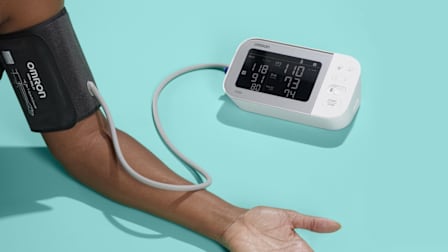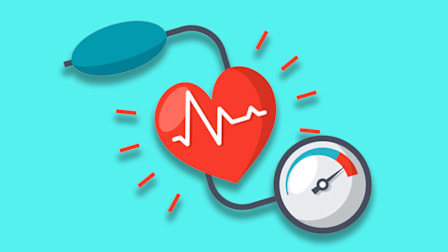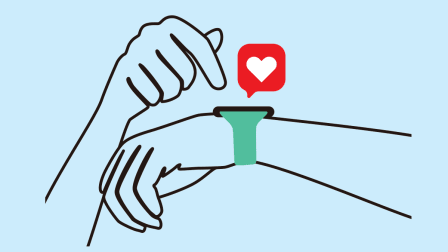High Blood Pressure During Pregnancy Is on the Rise, Study Says
Monitoring it and managing it carefully can help both mother and baby stay healthy
When you shop through retailer links on our site, we may earn affiliate commissions. 100% of the fees we collect are used to support our nonprofit mission. Learn more.

Cases of high blood pressure during pregnancy rose sharply from 1970 to 2010, according to a new study published in the journal Hypertension.
A key driver of the change: more women giving birth at older ages, says study author Cande Ananth, Ph.D., M.P.H., professor and vice chair of academic affairs and chief of the division of epidemiology and biostatistics in the department of obstetrics, gynecology, and reproductive sciences at Rutgers Robert Wood Johnson Medical School.
The study also found that black women are more likely to have high blood pressure during pregnancy than white women.
High blood pressure during pregnancy—defined in this study as hypertension diagnosed before pregnancy or in the first 5 months—threatens the health of both mother and baby. It’s linked with an increased risk of preterm birth, low birth weight, and severe complications for the mother, such as preeclampsia (a potentially fatal condition defined by high blood pressure during pregnancy plus signs of liver or kidney damage).
Here’s what you need to know about this study, and about your blood pressure if you’re pregnant or thinking of becoming pregnant.
What the Study Found
Researchers reviewed Centers for Disease Control and Prevention data on more than 151 million women who gave birth in hospitals between 1970 and 2010. (The researchers looked only at data through 2010 because the CDC’s data collection on hospitalizations changed substantially after that year.)
What You Can Do to Reduce Your Risk
If you already have high blood pressure and you’re thinking about having a baby, talk with your doctor well before you become pregnant, Roberts advises. That way, if you’re on medication, you can figure out whether or not the drugs you’re taking are safe for pregnant women. You may need to switch medications.
Lifestyle changes can help you get your blood pressure down before conceiving. Getting regular exercise, losing weight if you need to, quitting smoking, abstaining from alcohol, and improving your diet can all help, Ananth says.
If you do have high blood pressure while you’re pregnant, Roberts recommends finding a doctor who specializes in high-risk pregnancies, and working with that person to keep a close eye on your blood pressure. Monitoring your own blood pressure at home may help. Ask your doctor what level to aim for, and at what level you should call to alert them.
Know the warning signs of preeclampsia. Key symptoms to look out for: persistent headaches, abdominal pain, vision changes such as blurred vision or seeing spots or light, swelling of the face or hands, nausea or vomiting, sudden weight gain, and trouble breathing. If you notice any of these, call your doctor. If you’re diagnosed with preeclampsia, your doctor may recommend blood pressure medication and close monitoring either in or outside of the hospital. Depending on how far along you are in the pregnancy, your doctor may also suggest inducing labor.
Also, be aware that in many cases, preeclampsia won’t have any obvious symptoms. That’s another reason it’s critical to receive regular prenatal care, Roberts says. That way, your provider can perform urine and blood tests that can reveal liver or kidney dysfunction.
The CDC recommends that pregnant women with hypertension monitor their blood pressure at home. Our testers have evaluated home blood pressure monitors for accuracy, convenience, and comfort. Here, a few of our top picks:




